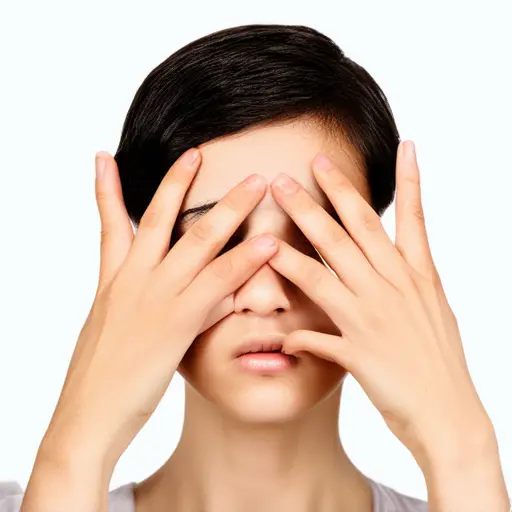A program so powerful, it’s designed to improve perfect eye health and give anyone who uses it crystal clear 20/20 vision in a matter of weeks.
Why Did My Vision Suddenly Improve in One Eye?

Sudden Vision Improvement in One Eye: Good News or Red Flag?
Picture this: you wake up one morning and suddenly see crystal clearly through one eye - like someone flipped an HD switch. While it might feel like winning the vision lottery, unexpected changes like this often have a story to tell. Before you celebrate, let's explore what might be behind this surprising turn of events and when you should actually be concerned.
That "Second Sight" Feeling: What's Really Happening?
When we talk about sudden vision improvement, we mean waking up to find one eye suddenly sharper without new glasses or surgery. It might last hours or days, but here's the catch - your eyes don't just randomly upgrade themselves. These changes can be your body's way of waving a yellow caution flag about your eye health or even your overall wellbeing.
Why You Shouldn't Just Shrug It Off
Our natural reaction might be "Hey, better vision is great!" But here's the thing - when vision changes dramatically overnight, it's rarely just good luck. Sometimes it's the first clue about conditions like diabetes or neurological issues. The smart move? Pay attention and get it checked.
What Could Be Behind Your Sudden Vision Boost?
Let's break down the usual suspects behind these mysterious vision upgrades:
Do THIS 7-Second Trick Tonight, Restore Perfect 20/20 Vision Tomorrow

VisiSoothe - Vision Breakthrough
Watch free special videoYour Eyes' Natural Adjustments
Sometimes it's just your eyes being quirky:
- The aging factor: As we get older, presbyopia can actually create temporary near-vision improvements before settling into farsightedness.
- Hydration highs and lows: That morning coffee vs. water balance might temporarily change your cornea's shape just enough to sharpen your sight.
- Eye strain relief: Finally getting that good night's sleep? Your overworked eyes might be thanking you with temporary clarity.
When Eye Conditions Play Tricks on You
Some eye issues have surprising early stages:
- Cataracts' cruel joke: Early cataracts can actually improve near vision temporarily (doctors call this "second sight") before clouding your vision.
- Astigmatism mood swings: Changes in your cornea's shape might accidentally focus light better... for now.
- Retinal roulette: Issues with your retina might cause fleeting improvements before more serious symptoms appear.
The Whole-Body Connection
Sometimes your eyes are reporting problems elsewhere:
- Blood sugar rollercoaster: If you have diabetes, vision changes can signal blood sugar swings.
- Migraine previews: That "improved" vision might actually be a visual aura preceding a headache.
- Nervous system signals: Conditions like MS often announce themselves through vision changes.
When Should You Actually Worry?
Not every vision change means panic, but some symptoms demand quick action.
Drop Everything and Call a Doctor If...
Get medical help immediately if your vision change comes with:
- A headache that feels like the worst of your life
- Missing chunks in your vision (like curtain coming down)
- Double vision or serious eye pain
- One side of your body not cooperating (think stroke symptoms)
The Serious Conditions You Might Be Facing
These vision changes could be early warnings for:
- Stroke or mini-stroke (TIA): Even temporary symptoms need emergency evaluation.
- Multiple sclerosis: About half of MS patients start with vision problems.
- Diabetes complications: Uncontrolled blood sugar literally changes how your eyes focus.
What Your Eye Doctor Will Want to Know
If you go in for evaluation (and you should), here's what to expect:
The Eye Exam Play-by-Play
- The classic eye chart: They'll check how each eye performs at different distances.
- Microscope for your eyes: A slit-lamp exam looks for cataracts, swelling, or damage.
- Retinal photo shoot: Special imaging checks for problems at the back of your eye.
- Peripheral vision test: Like a video game where you click when you see blinking lights.
Who You'll Need to See
Start with an ophthalmologist (eye MD). If they suspect brain or nerve issues, they might send you to a neurologist for MRIs or other tests.
The Natural Ultra Absorbable Dropper That Supports Strong Vision

Inside every drop of "EyeFortin" you'll find: A perfectly dosed proprietary blend of selected plants and minerals, carefully mixed to complement one another into a powerful vision supporting formula.
Try this at homeKeeping Your Vision Sharp for the Long Haul
Whether your vision change turns out to be simple or serious, here's how to protect your eyesight:
Smart Habits for Healthy Eyes
- Give your eyes screen breaks (try the 20-20-20 rule: every 20 minutes, look 20 feet away for 20 seconds)
- Wear sunglasses like they're going out of style (UV protection matters)
- Eat your greens (literally - kale and spinach have eye-friendly nutrients)
When to Get Checked (Even If You Feel Fine)
Mark your calendar for:
- Annual eye exams if you're over 40 or have risk factors
- More frequent checks if you have diabetes or family eye disease history
- Immediate visits for any sudden changes, even if they "improve" your vision
The Bottom Line
While sudden vision improvements might seem like a welcome surprise, they're often your body's way of sending an important message. The smartest thing you can do? Listen to that message and get it checked out. After all, when it comes to your vision, it's always better to know than to wonder.
Ever experienced vision changes that made you do a double-take? Share your story below - your experience might help someone else recognize when to seek help. And if you're currently dealing with unexplained vision changes, don't wait - your future self will thank you for making that appointment today.










